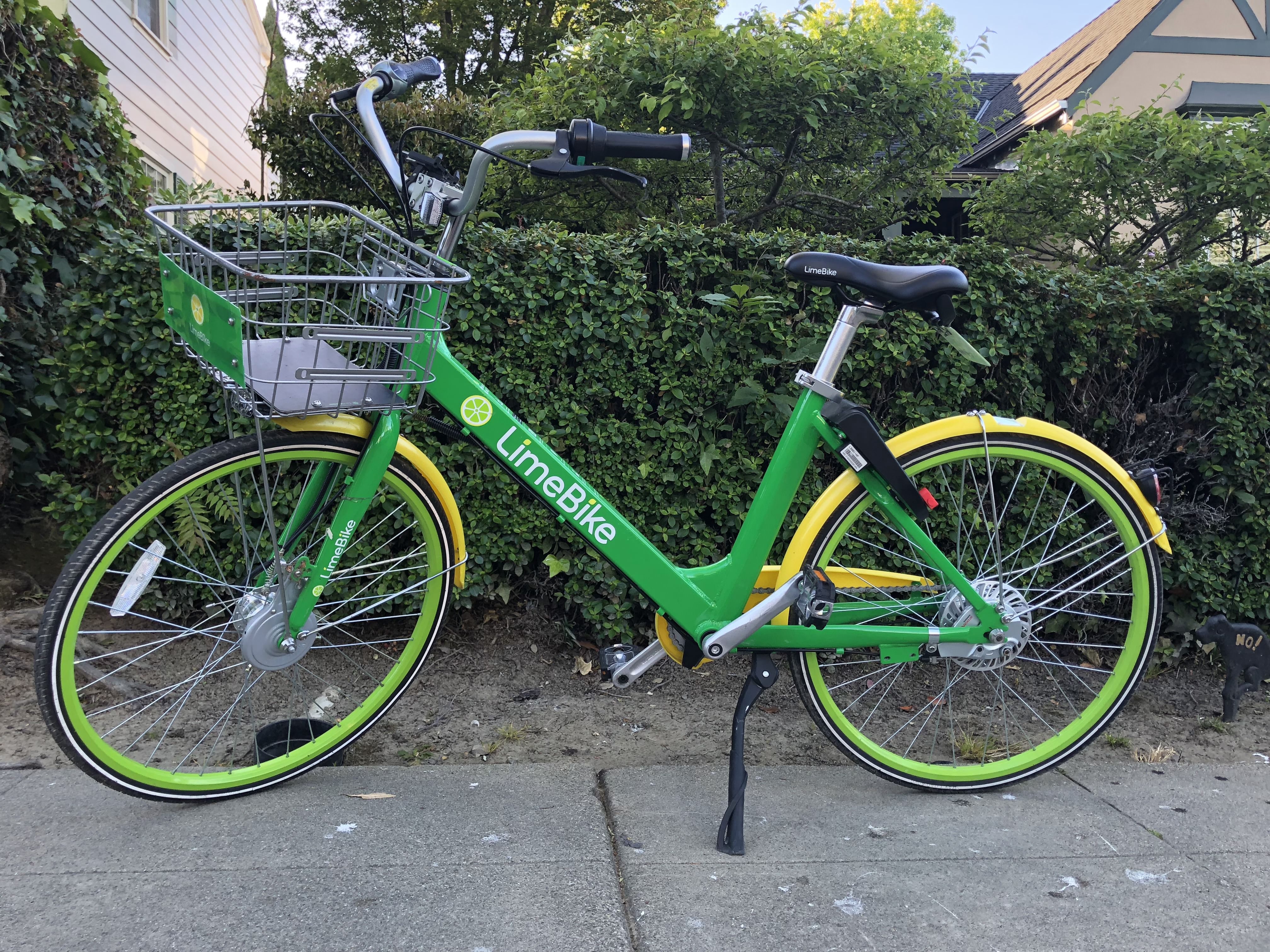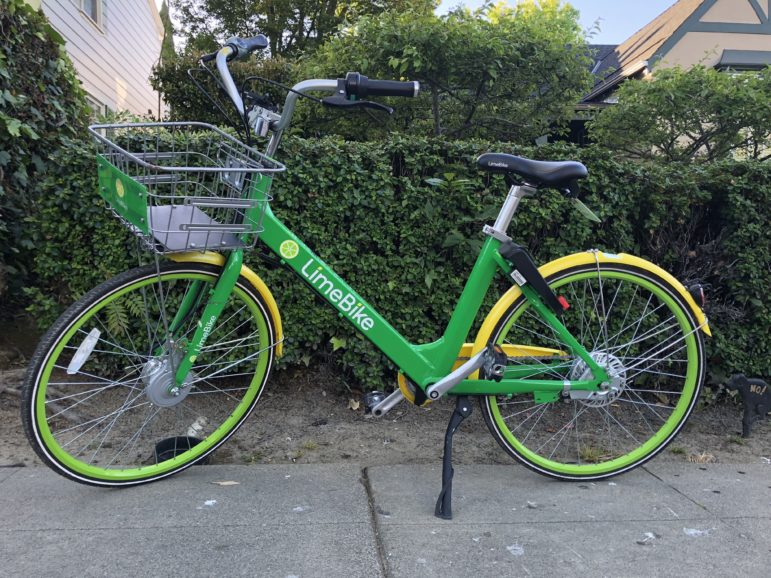

In many places in the Bay Area, including San Mateo, it is increasingly common to see bright green bikes or scooters parked by bike racks or on the sidewalk.
These bikes and scooters are from Lime — formerly called LimeBike — a new start-up for dockless bike sharing.
Founded by Toby Sun, Brad Bao and Adam Zhang and based out of San Mateo, Lime launched its dockless bikes in June 2017 with hopes to improve the environment. And according to Forbes, Lime was valued at $225 million as of October 2017.
Lime’s bikes and scooters are equipped with GPS so users can track, unlock and use them with the LimeBike app. They are self-locking, meaning that it is not necessary to park them at docking stations, unlike other bike sharing services, such as Citi Bikes or Ford’s Go Bikes. Instead, Lime instructs users to park their transportation in any “safe, appropriate location,” and then simply engage the built-in lock.
Lime can be found in many major cities including Chicago, Seattle, Dallas, Honolulu and Washington. And according to TechCrunch, the company is also beginning to expand overseas to Europe in cities such as Frankfurt, Germany and Zurich, Switzerland.
Dockless bike sharing networks first gained popularity in Chinese cities. Chinese company Ofo started the first dockless network in 2015 in Beijing, and the massive success throughout China has fueled the proliferation of dozens of competitors and a push to expand overseas.
However, American companies appear to be winning out in the Bay Area, with Brooklyn-based JUMP Bike having exclusive rights to provide San Francisco with dockless bikes until June 2019, and Lime serving various areas on the peninsula including San Mateo and Burlingame.
Sophomore Diana Chong first heard about Lime through her lacrosse teammates
.
“Around San Mateo, LimeBike is easier [than] using Uber and it’s more usable than using the bus because you don’t need to wait,” Chong said.
Freshman Isabella Yim thinks that Lime is a useful tool for high schoolers, since it is inexpensive — $1 can let someone rent a Lime for 30 minutes.
At the same time, Lime only started a year ago and there are some complications that still may need to be addressed.
“They do not have helmets for the users to use and the lights are not very bright … cars may not be able to see the biker,” Yim said. “It is a little bit impractical since once you lock the bike and finish your ride, do whatever you need to do in that location, and need to go back home or wherever, you have to search for another LimeBike and if you don’t find one you are stuck.”
Lime has also drawn the ire of city and transit officials in San Francisco. Although JUMP has exclusive rights to providing dockless share bikes in the city, there was initially no regulation for electric scooters, which Lime launched in the city in March.
Following complaints that scooters from Lime and other companies were being carelessly parked and illegally ridden on sidewalks, the Board of Supervisors passed an ordinance on April 17 that requires scooter companies to go through a permit process similar to that of dockless bike sharing.
Freshman Rikio Dahlgren usually uses Lime when he is with his friends. He feels safe using the bikes and believes they are easy and cheap to use. However, he has run into issues.
“I’ve used [a Lime bike] once and it was just, like, broken,” Dahlgren said. “Sometimes people just leave them anywhere, which I guess is the whole appeal of it.”
Lime has rules and videos explaining how to properly park their bikes and scooters and feature in their app to report illegally parked bikes. However, this makes it users’ responsibility to learn the rules and report issues.
Lime has not responded to the Outlook’s request for comment.
Dahlgren believes that Lime can do certain things to improve in the future.
“[Lime can become more popular] as long as [they] can fix their issues with the cities and figure out a way for users to actually follow rules [since] no one really follows the guidelines or anything,” Dahlgren said, “and get it to work with the neighborhood so people will like it, it’ll do OK.”
City governments throughout the Bay Area, including San Mateo, have been carefully regulating the companies and number of bikes that can operate in their areas. In China, massive numbers of bikes strewn on sidewalks and ending up in landfills have demonstrated that, while bike sharing may serve a public good, unrestricted expansion can lead to it being a nuisance.
Additional reporting by Michael Herrera



